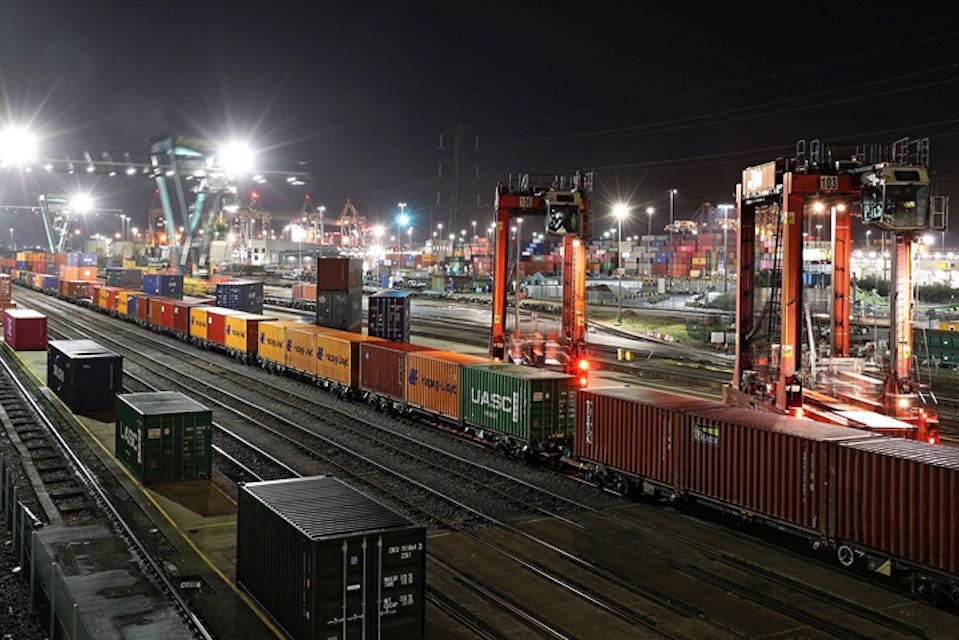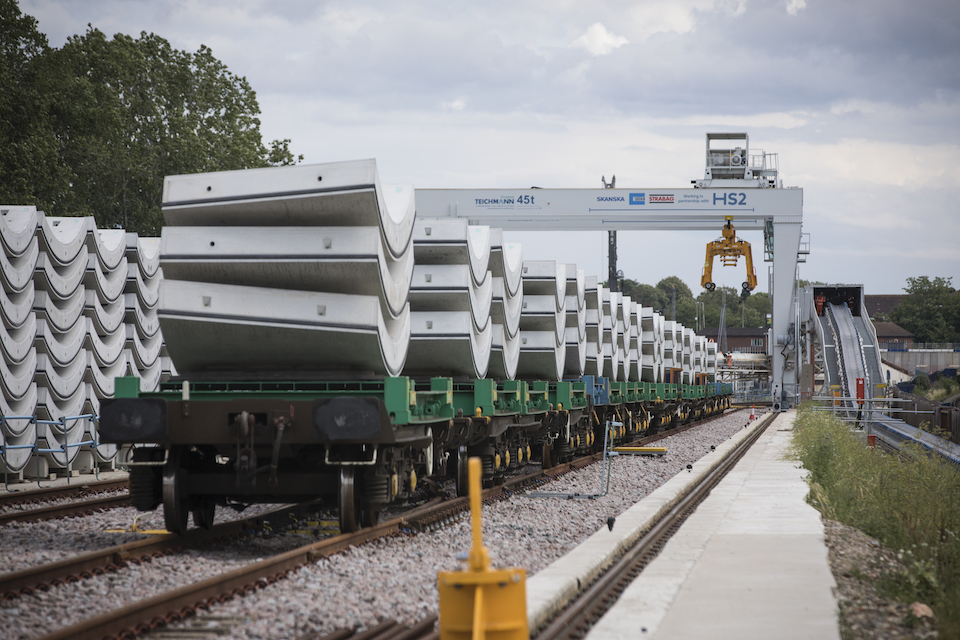All rail traffic in the UK and Ireland has been significantly disrupted by a vast Atlantic storm that blew in on Sunday and persisted for much of Monday. That’s the good news. The bad news is that there is a second storm chasing in on its heels, ready to blow almost as hard on Tuesday and Wednesday. The only respite is that the later storm system is not quite as widespread.
While some parts of Great Britain were left wondering what all the fuss was about, other parts were left wondering if there would be anything left by the time the morning came. Principally the west and north of the country was battered by Storm Isha, with the remainder having an unpleasant night of high winds and high rainfall. That put the railway network on alert and brought many services to a halt. The storm was no respecter of commuter services or bulk trains. Blocked lines were blocked for everyone. Now the British Isles are braced for a reprise in the next twenty-four hours.
Dismay at the closure of the busiest route
Freight operators are generally sensitive to enquiries about disruptions, and the winter storms so far this year have tested that resolve to the limit. Some operators have faced no real problems. Other have had their timetables blown away, literally. One UK operator told RailFreight.com that the bulk of their traffic was “to the east of the Pennines” and had hardly been affected at all. Certainly, observations of the Midland Main Line would suggest that the inland routes in England were spared any significant disruption.
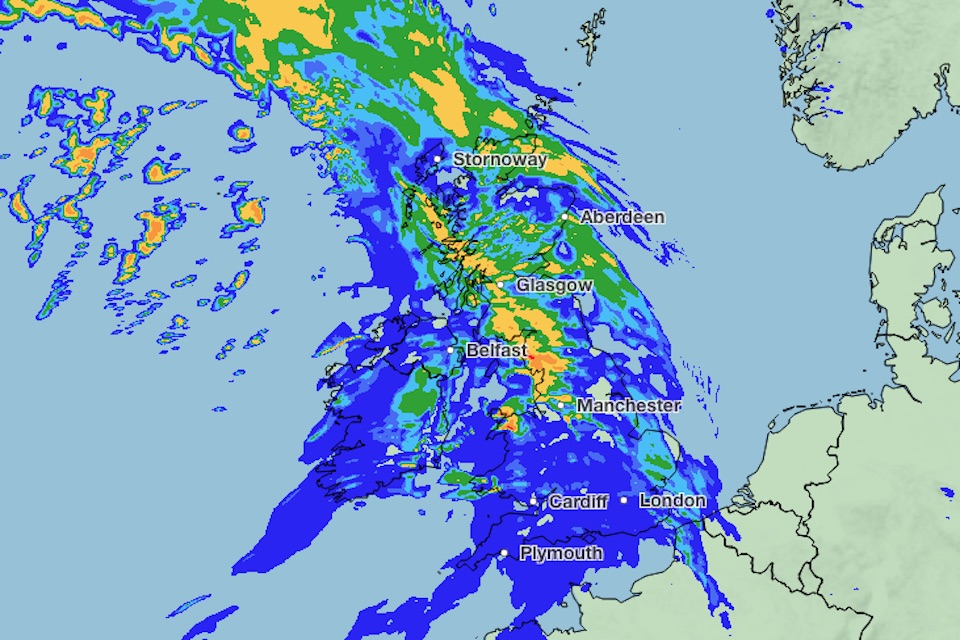
The timing of Storm Isha, which hit on Sunday night, spared the majority of freight operators from significant disruption. Lower volumes on the move on Sundays allowed for delayed departures or diverted services. However, the round-the-clock nature of intermodal traffic was disrupted to some extent. Operators on the West Coast Main Line all expressed dismay at the closure of the line on Sunday and into Monday. Nevertheless, the route is exposed to westerly gales and its closure was almost inevitable under the severe circumstances. The busiest mixed-traffic route in Europe not only carers an intensive timetable of commuter, regional and express passenger trains, but also slots in a combination of express logistics, fast intermodal and heavy haul bulk trains, every day.
record wind and around the clock repairs
Speaking to Times Radio on Tuesday morning, the UK rail minister Huw Merriman acknowledged the railway network had been significantly affected by the January storms. He made his comments on the same day as the UK government launched a cut-price ticket promotion, blunted by the headline grabbing delays and disruption for all traffic. He put this down largely to the conditions, describing the weather of the past few weeks as “brutal”.
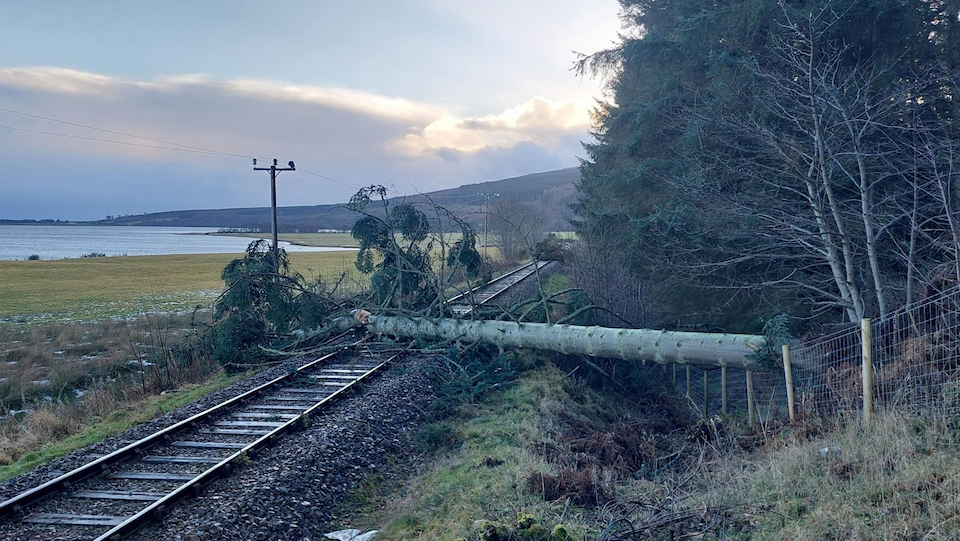
Merriman may have a point. At the height of Storm Isha, sustained winds of 107 miles per hour (171 kph) were recorded on the Tay Bridge connecting Fife with Dundee and Aberdeen. “Storm Isha has caused a huge amount of damage across Scotland’s Railway”, said Liam Sumpter, route director, Network Rail Scotland. “Our teams have been working around-the-clock, carrying out both minor and major repairs to damaged infrastructure. We unfortunately expect even more disruption in the coming days as Storm Jocelyn arrives in Scotland.”
Unique reliance on intermodal by rail
The passenger operator ScotRail, and Avanti, which runs long distance services on the West Coast Main Line, both cancelled their entire timetable overnight on Sunday and Monday. ScotRail has again cancelled its entire timetable from Tuesday evening until late on Wednesday morning. That means commuters will be without train services, either to work or back home for Monday, Tuesday and Wednesday.
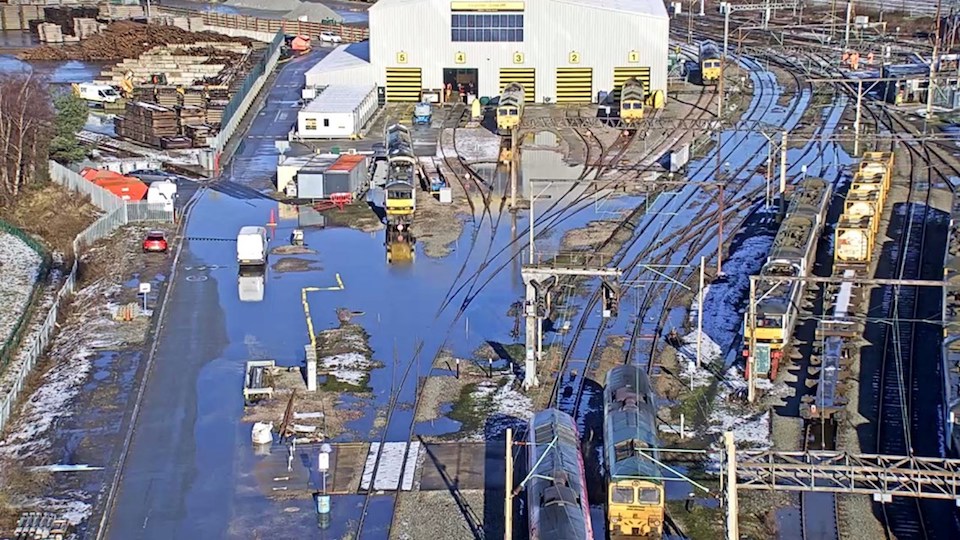
Storm Jocelyn may have limited impact on freight services. The worst of the weather system will be confined to the west and north east of Scotland. Those areas are relatively sparsely populated, and relative sparely served by rail freight. Bulk flows may be delayed to industry in Fort William (on the exposed north west coast of Scotland) and Aberdeen in the north east. Might the supermarket shelves be depleted in Inverness? It is possible, given the Highland city’s unique reliance on intermodal deliveries by rail. If not Storm Jocelyn, then it’s the snow on the Highland Main Line. Blizzards, icy blasts and hurricane-force winter winds – or as they say in hardy Inverness: weather as usual.

